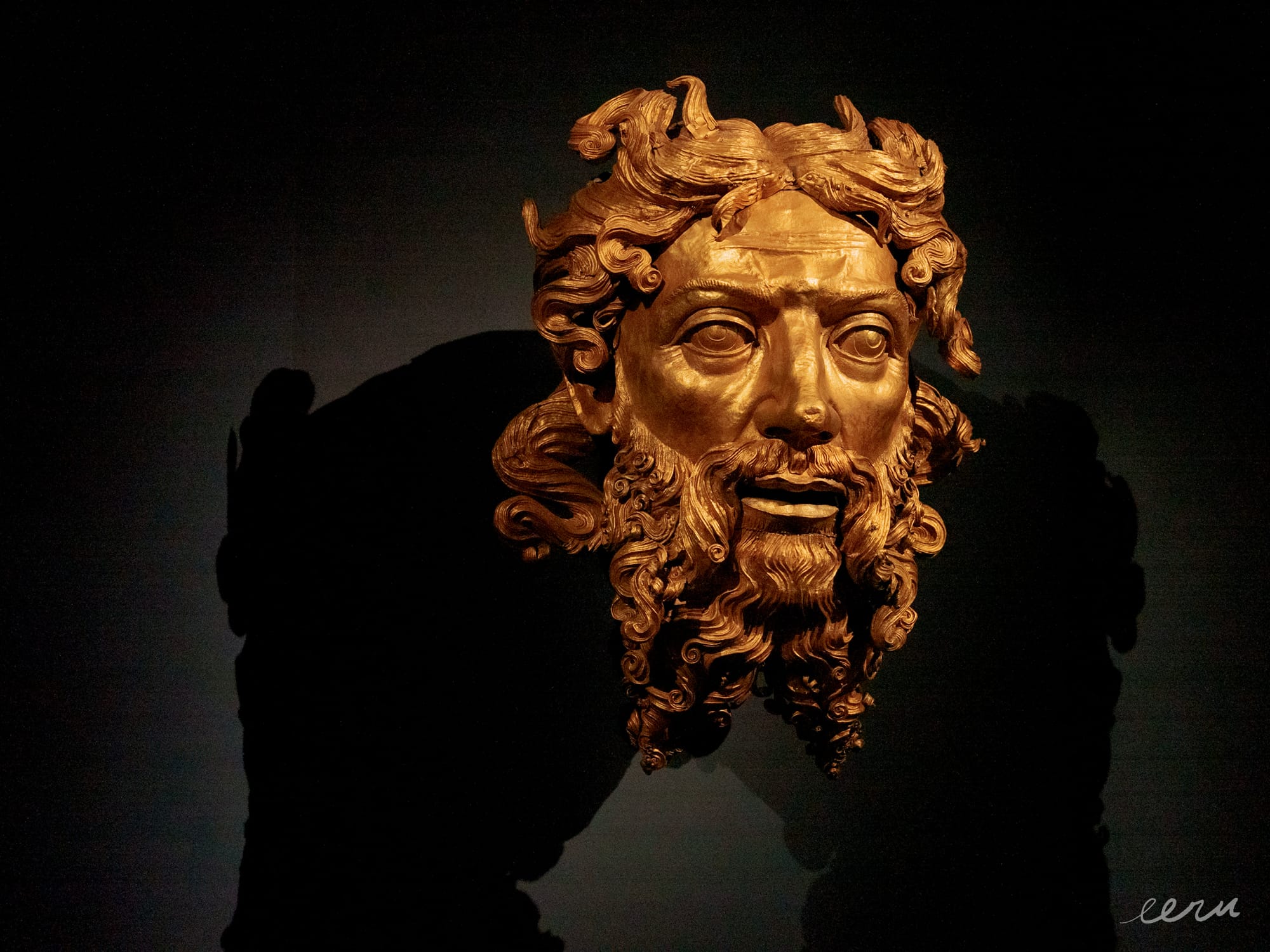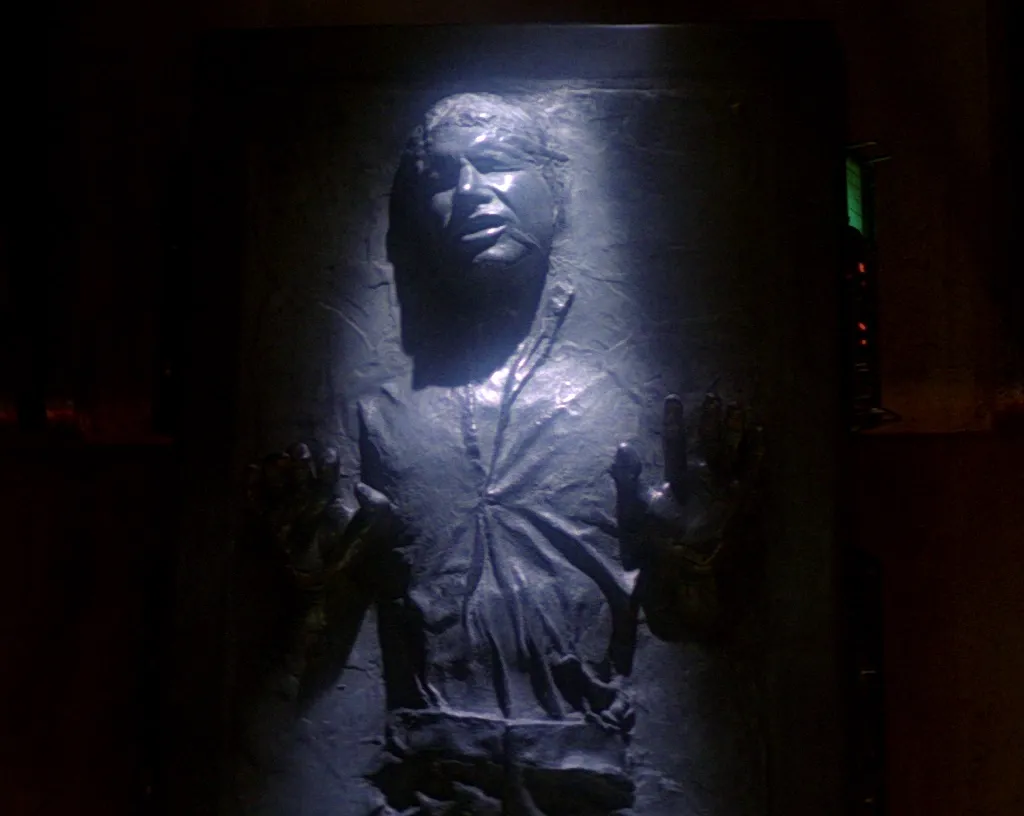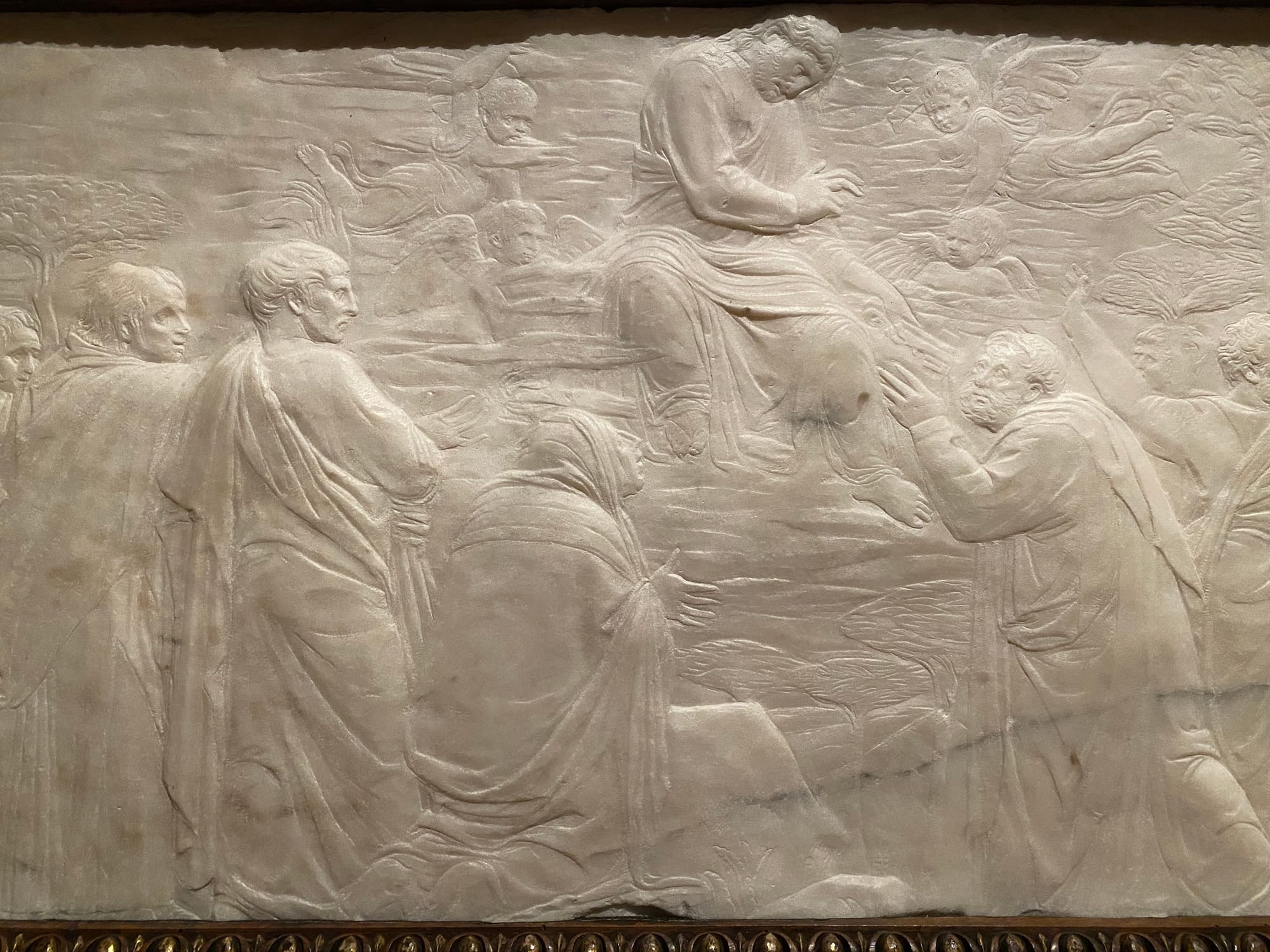Flatness and Donatello

I went to the V&A today to see Donatello’s sculpture works. Although it was less about Donatello but related to similar styles or influenced by him, it is worth seeing at least once for those who study Deleuze’s Logic of Sensation. I personally think it would be a different perspective on Egyptian Art, which Deleuze mentioned as tactile art, before and after.

I thought I already understood the differences between extreme tactile images and visual images, but now I realise that I have misunderstood entirely. Donatello’s work, in a sense, is a valuable source for understanding the betweenness of tactility and visuality following his flattened relief style. It would be worth writing a longer essay than in the diary, and I could write more than an essay, but as it is a personal diary, I’m contented to mention here first with some images.
Relief, compared to sculpture and painting, has a unique position in the figurative world. It places itself between flat and cubic, something like a half-figure trying to escape from the flat surface. This is actually what I felt from Donatello’s early works. They all look like Han Solo, frozen in his coffin.


But because it is less cubic or three-dimensional and flattened on the surface, it feels less tactile but more like a painting separated from the temporal sense. But the question is, what is the concept and notion of “time”? Why does that concept always keep coming back to the art practice? layers? dots? lines? It might be (again) worth writing down what I think about the concept.
